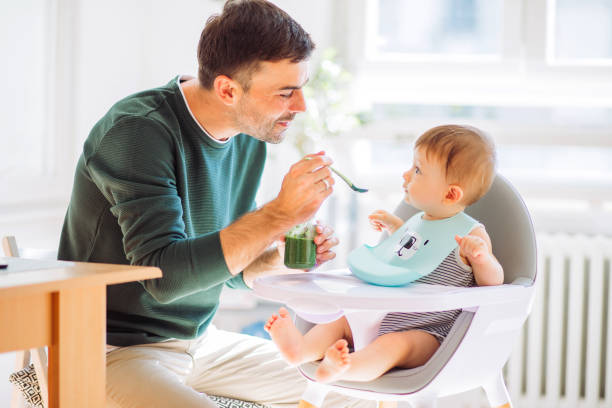Pacifiers are a popular choice for many parents, offering a sense of comfort and security to their little ones. For many parents, a pacifier is a go-to tool when caring for their newborn. Babies have an innate urge to suck, whether for feeding or comfort, and a pacifier can fulfill this need.
The Soothing Side of Pacifiers
- Comforting friend: A pacifier mimics sucking, a natural reflex that soothes and calms babies.
- Feeding aid: For premature babies, sucking on a pacifier can help improve their ability to breastfeed or bottle-feed.
- Reduced SIDS risk: Studies suggest pacifier use during sleep may lower the risk of Sudden Infant Death Syndrome (SIDS).
- Easier sleep onset: A pacifier can help your baby fall asleep faster by satisfying their sucking urge.
- Pain relief: Pacifiers can offer comfort during minor procedures like blood draws.
- Easier habit to break: Compared to thumb sucking, pacifier use is a simpler habit to wean your child off of.
The Not-So-Sweet Side of Pacifiers
While pacifiers can provide comfort to your baby, there are several drawbacks associated with their use:
- Nipple Confusion: Introducing a pacifier too early, especially before breastfeeding is well-established, can lead to nipple confusion. Babies may prefer the easier sucking action of a pacifier over the more complex technique required for breastfeeding, potentially leading to feeding difficulties.
- Habit Formation: Babies may become reliant on pacifiers to fall asleep. If the pacifier falls out during the night, they may wake up crying, disrupting their sleep and yours.
- Dental Development: Prolonged pacifier use can impact the alignment and spacing of a baby’s teeth as they begin to erupt. Over time, this may result in an overbite or other dental issues, potentially necessitating orthodontic treatment later in life.
- Increased Risk of Ear Infections: Studies have shown that prolonged pacifier use is associated with a higher incidence of ear infections in babies. Excessive sucking on a pacifier can lead to the opening of the tubes in the ears, making them more susceptible to infection.
- Choking Hazard: It’s crucial to select pacifiers with a base wide enough to prevent them from becoming lodged in the baby’s mouth or throat. Additionally, pacifiers should be made of a single, durable piece to minimize the risk of choking if they break apart.
Safe Pacifier Practices
If you choose to use a pacifier, here are some tips for safe and effective use:
- Wait for breastfeeding to be established.
- Choose a one-piece, dishwasher-safe pacifier.
- Clean and sterilize the pacifier regularly.
- Don’t use a pacifier with a hungry baby.
- Avoid pacifiers with cords or strings.
- Aim to wean your baby off the pacifier by 6 months.
Breaking the Pacifier Habit
Many children can easily give up their pacifiers with a little encouragement. Here are some tips:
- Be patient and positive.
- Offer praise for progress.
- Use distraction or activities to keep hands busy.
Remember, every baby is unique. Weigh the pros and cons, and choose what works best for your little one and your parenting style. Don’t hesitate to consult your pediatrician if you have any concerns.pen_sparktunesharemore_vert

